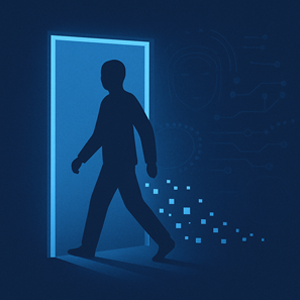 AI changed how we hire, but now it’s transforming how we part ways too. In an era defined by job-hopping, remote work, and increasing legal risks, offboarding is no longer just an administrative task. It’s a critical moment in the employee lifecycle, and AI is helping HR teams turn exits into opportunities for growth, insight, and protection.
AI changed how we hire, but now it’s transforming how we part ways too. In an era defined by job-hopping, remote work, and increasing legal risks, offboarding is no longer just an administrative task. It’s a critical moment in the employee lifecycle, and AI is helping HR teams turn exits into opportunities for growth, insight, and protection.
Predicting Turnover Before It Happens
AI analytics can identify patterns that suggest an employee is preparing to leave, often months in advance. By analyzing factors like declining engagement, communication trends, and shifting productivity, HR teams can take action early, whether to re-engage valuable talent or prepare for a seamless transition.
Smarter Exit Surveys That Actually Tell the Truth
Traditional exit interviews tend to produce surface-level feedback. Employees often withhold honest opinions, either out of loyalty or fear. AI-powered surveys, enhanced by natural language processing, dive deeper into tone and emotion to uncover hidden cultural issues and management challenges that might otherwise go unnoticed.
Making Offboarding a Cross-Functional Win
Offboarding touches multiple departments, from HR to IT. AI-enabled platforms help automate the entire workflow, ensuring that employee access is revoked, benefits are updated, and hardware is tracked in real time. This minimizes the risk of data breaches and ensures that no steps fall through the cracks.
Capturing Knowledge Before It Walks Out the Door
When an experienced employee leaves, they often take years of institutional knowledge with them. AI tools can conduct structured interviews, extract valuable documentation, and convert that into searchable knowledge bases for training, handoffs, and onboarding. This reduces disruption and preserves hard-earned insights for the future.
Creating a More Empathetic Exit Experience
AI is also being used to monitor how exiting employees feel about the process itself. Sentiment analysis tools review exit interactions to identify frustration, confusion, or dissatisfaction. This allows HR to refine offboarding policies and preserve a company’s reputation among both former employees and future candidates.
Why This Matters Right Now
Workforce transitions are more common and complex than ever. At the same time, the consequences of a poorly managed offboarding process can be severe from lost knowledge to public backlash on review platforms. AI is helping organizations approach offboarding with the same care and intelligence as hiring, making the process more secure, insightful, and respectful.
Smart offboarding is no longer optional. With the help of AI, it’s becoming a competitive advantage.
